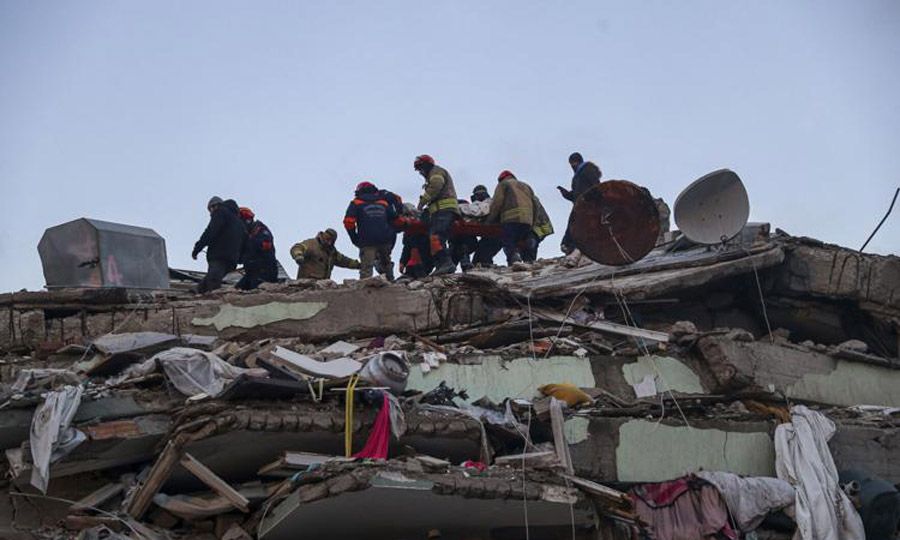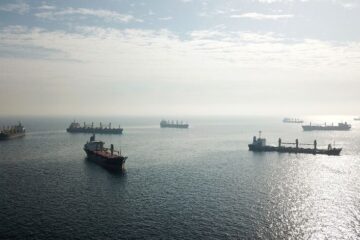Turkey earthquake rescuers work through night as hopes fade for survivors
 Photo: Reuters
Photo: ReutersRescuers worked through the night to rescue people clinging to life beneath the rubble eight days after Turkey’s worst earthquake in modern history but hopes of finding many more survivors were fading on Tuesday.
A boy and a man were rescued in hard-hit Kahramanmaras early on Tuesday, 198 hours after the 7.8 magnitude earthquake struck on Feb. 6.
Elsewhere in Kahramanmaras, rescuers were attempting to reach a grandmother, mother and daughter, all from one family, who appeared to have survived the quake and aftershock that killed more than 37,000 in Turkey and Syria.
But others were bracing for the inevitable scaling down of operations as low temperatures reduced the already slim chances of survival, with some Polish rescuers announcing they would leave on Wednesday.
In the shattered Syrian city of Aleppo, U.N. aid chief Martin Griffiths said the rescue phase was “coming to a close”, with the focus switching to shelter, food and schooling.
Syrian President Bashar al-Assad had agreed to allow more U.N. aid to access the war-torn country from Turkey, diplomats said late on Monday.
Turkish media said rescuers held out hope of finding survivors at several locations in Kahramanmaras province, Adiyaman and Hatay, where there were signs of life beneath the ruins.
But in the southern city of Antakya, excavators began tearing down heavily damaged buildings and clearing rubble. Blue lights from ambulances lit up the dim streets where there was still no power and the smell of smoke filled the air.
Hundreds of people are leaving the city every day, and those who remain huddle around fires on street corners and in parks, and sleep in tents or cars.
As they worked through the night, rescue workers occasionally called for silence as they listened for the faintest sound of life from under the rubble.
THREE GENERATIONS TRAPPED
In Kahramanmaras, rescuers said they had contact with a grandmother, mother and baby trapped in a room in the remains of a three-storey building. Rescuers were digging a second tunnel to reach them, after a first route was blocked, and a human chain was formed to carry out the rubble in buckets.
“I have a very strong feeling we are going to get them,” said Burcu Baldauf, head of the Turkish voluntary healthcare team. “It’s already a miracle. After seven days, they are there with no water, no food and in good condition.”
The Turkish toll now exceeds the 31,643 killed in a quake in 1939, the Disaster and Emergency Management Authority said on Monday, making it the worst quake in Turkey’s modern history.
The total death toll in Syria, a nation ravaged by more than a decade of civil war, has reached 5,714, including those who died in both the rebel enclave and government-held areas.
It is the sixth most deadly natural disaster this century, behind the 2005 tremor that killed at least 73,000 in Pakistan.
Turkey faces a bill of as much as $84 billion, a business group said. Turkey’s Urbanisation Minister Murat Kurum said some 42,000 buildings had either collapsed, were in urgent need of demolition, or severely damaged across 10 cities.
Dozens of residents and overwhelmed first responders who spoke to Reuters expressed bewilderment at a lack of water, food, medicine, body bags and cranes in the disaster zone in the first days after the quake, with many criticising what they said was a slow and centralised response by Turkey’s Disaster and Emergency Management Authority (AFAD).
Said Qudsi travelled to Kahramanmaras from Istanbul and buried his uncle, aunt and their two sons, while their two daughters were still missing.
“People are not dead because of the earthquake, they are dead because of precautions that weren’t taken earlier,” he said.
Turkish President Tayyip Erdogan, who faces an election scheduled for June that is expected to be the toughest of his two decades in power, acknowledged problems in the initial response but said the situation was now under control.
SYRIA AID
The earthquake has fanned resentment among some Turks towards the millions of Syrian refugees who have fled their civil war to Turkey. Syrians said they had been accused of looting, kicked out of camps, and insulted.
Syria’s rebel-held northwest has itself received little aid. A source from Hayat Tahrir al-Sham (HTS), an Islamist group which controls much of the region, told Reuters the group would not let in shipments from government-held areas and aid would come from Turkey.
Assad has agreed to allow three border crossings to operate between Turkey and Syria for a three-month period, U.N. aid chief Martin Griffiths told a closed-door Security Council meeting on Monday, according to diplomats. To date, there has been only one open, which has slowed the flow of necessary aid.
The head of a Syrian opposition-run rescue group on Tuesday denounced a U.N. decision to give Assad authorisation over aid deliveries through border crossings with Turkey, saying it gave him “free political gain”.
SOURCE: REUTERS










